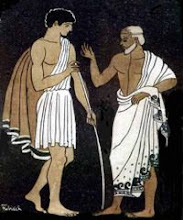In a nutshell:
In classical theory, economists believed every dollar in the economy found a rational use. Everyone was employed, because supply created its own demand. Every dollar earned would either be spent (rationally) or saved-that which was saved went on to be invested in a capital project. "Nothing is hoarded, nothing lays idle."
Keynes posited that capital is not always allocated efficiently. Uncertainty will lead "animal spirited" entrepreneurs to tempt providence. While at the same time make their risk averse, liquidity preferring cousins hoard cash. Government, he argued, should intervene with fiscal policy to manage demand.
Keynes appreciated the classical model’s elegance and consistency, virtues economists still crave. But that did not stop him demolishing it. In his scheme, investment was governed by the animal spirits of entrepreneurs, facing an imponderable future. The same uncertainty gave savers a reason to hoard their wealth in liquid assets, like money, rather than committing it to new capital projects. This liquidity-preference, as Keynes called it, governed the price of financial securities and hence the rate of interest. If animal spirits flagged or liquidity-preference surged, the pace of investment would falter, with no obvious market force to restore it. Demand would fall short of supply, leaving willing workers on the shelf. It fell to governments to revive demand, by cutting interest rates if possible or by public works if necessary.
The article goes on with the following subjects:
- the inflation/unemployment trade-off;
- stagflation of the 1970's;
- "freshwater" (inland) v. "saltwater" (coastal) Keynesian divergence,
- "brackish economics"-inflation rate targeting by the government's central banks,
- current economists wedded to technique (using computers to model the economy: DSGE models) over theory
- flawed assumptions in economic models where as asset prices remain consistent and there were no financial intermediaries to meddle things up, ,
- Paul Krugman's advocacy of fiscal expansion,
- Richard Kahn's pointing out that a dollar spent on public works might generate more than a dollar of output if the spending circulated repeatedly through the economy, stimulating resources that might otherwise have lain idle,
- multiplier discrepancy,
- public spats between academic minds,
“promises of payment/Are neither food nor raiment”
it wraps with this optimistic prognosis
Economists were deprived of earthquakes for a quarter of a century. The Great Moderation, as this period was called, was not conducive to great macroeconomics. Thanks to the seismic events of the past two years, the prestige of macroeconomists is low, but the potential of their subject is much greater. The furious rows that divide them are a blow to their credibility, but may prove to be a spur to creativity.
*The Economist calls itself "a newspaper"
